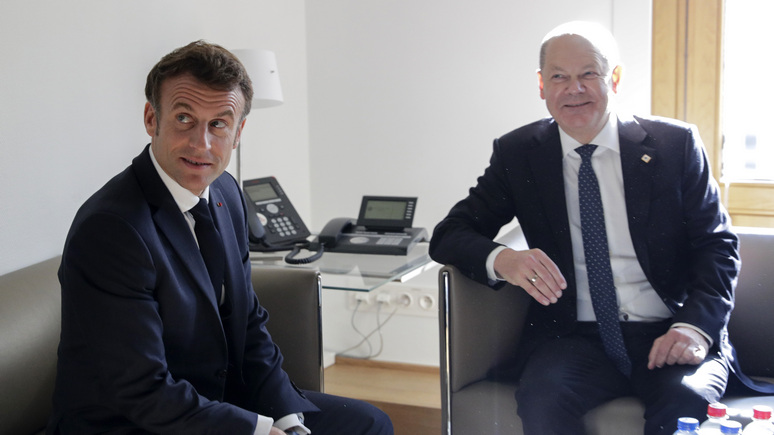Germany has long ago ceased to show friendly feelings towards France and does not hesitate to defend its national interests without caring what Paris thinks, said Gilbert Casazus, an honorary professor at the University of Fribourg and an expert on Franco-German relations. As the expert writes in the pages of Le Figaro, France, for its part, does not dare to contradict its eastern neighbor, doing its best to preserve their “tandem” – but in the eyes of the Germans it has a much more modest value.
Disagreements between Paris and Berlin are often presented as “a very ordinary quarrel” caused by difficult circumstances – but in fact they are “the result of a deep crisis” in relations between the two countries, says Gilbert Casazus, professor emeritus of the University of Fribourg (Switzerland) and an expert on Franco-German relations, in his article for Le Figaro. As the expert explains, the bone of contention between the neighbors is not only about the intra-European consequences of the hostilities in Ukraine – and France and Germany are no longer afraid to talk about their contradictions publicly.
Remembering the difficulties it once had to deal with the reunification of Germany, France seems to have found a way to breathe new life into the Franco-German tandem, as French President Emmanuel Macron outlined in a speech at the Sorbonne on September 26, 2017 (Macron then declared his intention to radically transform the European Union, including through rapprochement with Germany. – InoTV), recalls Casazus. However, he was disappointed: there was no reaction to Paris’ initiatives from Berlin-except for an article published in March 2019 by Annegret Kramp-Karrenbauer, chairwoman of the Christian Democratic Union, calling for “creating Europe right now,” while moving in the opposite direction to what France had envisioned. Angela Merkel, who as “the undisputed leader of all Europe” was free to pursue her own course in the field of trade and energy relations with Russia and China without reference to Paris, remained silent for a long time – and in the end simply handed “the prerogative to give an answer that would certainly not please the French president” to the new Chancellor Olaf Scholz, the author argues.
As the Swiss professor underlines, Scholz, both in his speech in Prague on September 29 and at the Party of European Socialists congress in Berlin on October 15, once again expressed ideas that run counter to the French proposals. The German chancellor not only expressed completely different thoughts on gas, energy, defense and pan-European structures, but also advocated enlarging the EU to thirty-six member states, without paying any attention to the need to deepen EU institutions, which France has always talked about.
“By calling for the inclusion of the new members in the common space, for their economic involvement in the great European market under German influence, and, by the same logic, for their security by NATO forces, Scholz followed in the footsteps of some of his predecessors, who were more Atlanticist than European, or even more in favor of an Anglo-Saxon model than one inspired by the French Republican tradition,” Casazus observes.
246 total views, 2 views today



